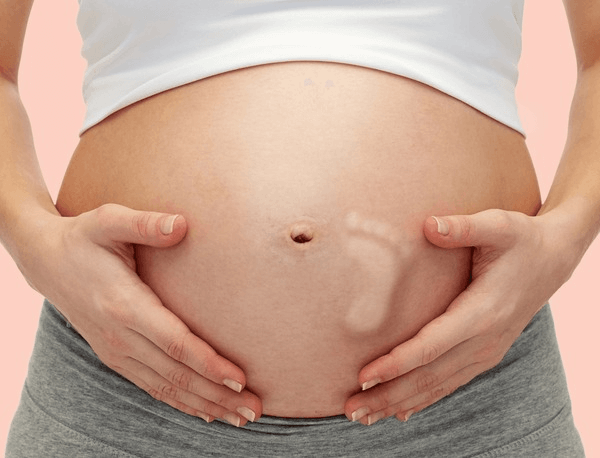Baby’s First Kick: What Does It Feel Like?

One of the most exciting milestones during pregnancy is feeling your baby’s first kick. Often referred to as “quickening,” these early movements are a reminder that your little one is growing and becoming more active inside the womb. But what exactly does a baby’s first kick feel like, and when can you expect to experience it?
When Will You Feel Baby’s First Kick?
Every pregnancy is unique, so there’s no universal timeline for when you’ll feel your baby’s movements. However, many women report feeling their baby’s first kick between 18 to 25 weeks of pregnancy. If it’s your first pregnancy, you might notice the kicks later, as it can take some time to recognize what they feel like. Second-time moms often feel the kicks earlier, as they’re more familiar with the sensation. For helpful first-trimester survival tips, check out this complete guide for expecting mothers.
What Does the First Kick Feel Like?
The sensation of a baby’s first movements can vary from one woman to another. Some describe it as a gentle fluttering, while others compare it to gas bubbles or tiny muscle spasms. Here are some common ways women describe the feeling:
- Fluttering: The most common description is that it feels like butterfly wings gently flapping inside your belly.
- Popcorn Popping: Some women say the sensation is similar to small bursts, like popcorn kernels popping.
- Twitches: It can feel like slight twitches or muscle spasms.
- Rolling: Some women feel more of a rolling or tumbling motion, especially as the baby grows larger.
It’s important to note that at first, these movements are often light and easy to miss. As your baby grows, the kicks will become stronger and more frequent.
How Often Should You Feel Baby Kicks?
Once you begin to feel your baby’s kicks, they’ll gradually become more noticeable and frequent. However, it’s normal for the movements to be inconsistent in the early weeks. Over time, you’ll get to know your baby’s movement patterns. By the third trimester, doctors often recommend keeping track of fetal movements to ensure your baby is active and healthy.
Understanding what you’re feeling can be difficult at first, especially as pregnancy causes so many changes in your body, including food aversions and appetite shifts. These can sometimes make it harder to focus on subtle sensations like early baby kicks. For more information on pregnancy-related food changes, visit this resource on food aversions and appetite changes.
When to Contact Your Doctor
While baby kicks are usually a sign of a healthy pregnancy, there are times when you should consult your healthcare provider. If you notice a sudden decrease in your baby’s movements or haven’t felt any kicks by the 25th week of pregnancy, it’s a good idea to reach out to your doctor. They may recommend an ultrasound or other tests to ensure everything is progressing as it should.
Conclusion
Feeling your baby’s first kick is an unforgettable moment for any expecting mother. Whether it feels like a flutter, pop, or twitch, these movements are a heartwarming reminder of the life growing inside you. As your baby grows, those gentle flutters will turn into strong kicks, connecting you even more to the little one you’ll soon meet.
For those navigating the early stages of pregnancy, preparing for your baby’s movements can be just one part of the adventure. For further support, don’t forget to explore survival tips for your first trimester.
Enjoy every moment—those first kicks are just the beginning!





